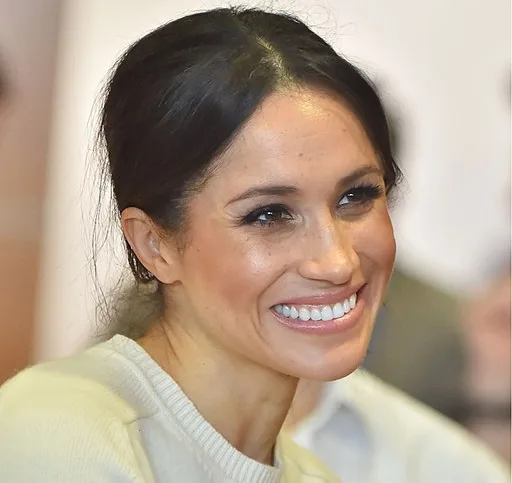Bev Turner delivers a sharp critique of the Duchess of Sussex, contrasting her advocacy with her previous role in ‘suits
Meghan Markle has faced a scathing critique from GB News host Bev Turner, who has dubbed the Duchess of Sussex the “princess of woke.” During a recent interview with Michael Cole on GBN America, Turner sharply criticized Markle for her current advocacy work, suggesting it stands in stark contrast to the non-political themes of her former TV role in Suits.
Turner praised Suits for its merit-based portrayal of characters, highlighting a plotline where a black character’s qualifications are questioned but ultimately defended as based on merit rather than race. This, Turner argued, reflects a pre-“woke” era where diversity was recognized but not the focal point.
Embed from Getty ImagesIn contrast, Turner accused Meghan Markle of fully embracing the “woke” agenda, which she argues emphasizes identity politics and social justice over individual merit. This criticism aligns with Turner’s broader disapproval of what she perceives as the politicization of social issues.
Meghan Markle, known for her activism on feminism and racial equality, has previously addressed the term “woke” on her podcast Archetypes, where she challenged the negative connotations associated with the term. Markle argued that “woke” originally means being alert to social injustices, and criticized the societal backlash against it.
Analysis:
Political: Turner’s critique reflects ongoing debates about identity politics and social justice in public discourse. Meghan Markle’s advocacy for feminist and anti-racist causes aligns her with a “woke” agenda, which has become a contentious political issue. The backlash against “woke” culture, as seen in Turner’s comments, underscores a divide in public opinion regarding the role of social justice in contemporary discussions.
Social: The term “woke” has become a loaded word in societal conversations, often used pejoratively to criticize progressive movements. Meghan Markle’s involvement in advocacy is seen by some as a commitment to addressing social issues, while critics like Turner view it as a departure from more traditional or less politically charged roles. This reflects broader social debates about the role of activism and how it is perceived by different segments of society.
Racial: Turner’s comments touch on racial dynamics, particularly the concept of diversity and how it is integrated into societal structures. Meghan Markle’s work as an advocate for racial equality and her previous role in Suits both engage with issues of race, though from different angles. The criticism of Markle’s “woke” stance reflects ongoing tensions about how race and diversity are discussed and represented in media and public life.
Gender: The debate around Meghan Markle’s activism also intersects with discussions about gender, particularly in how women’s voices and opinions are perceived. Turner’s criticism of Markle as the “princess of woke” can be seen as part of a broader discourse on how women’s advocacy and feminist principles are received and challenged. Markle’s response to these critiques emphasizes the challenges women face when speaking out on social issues.
Economical: From an economic perspective, Meghan Markle’s role in advocacy and media can influence public perception and market trends. The discourse around “woke” culture affects consumer attitudes and brand reputations, particularly for those involved in social justice causes. Markle’s high-profile status and involvement in various projects contribute to her economic impact both in terms of public engagement and potential commercial ventures.
